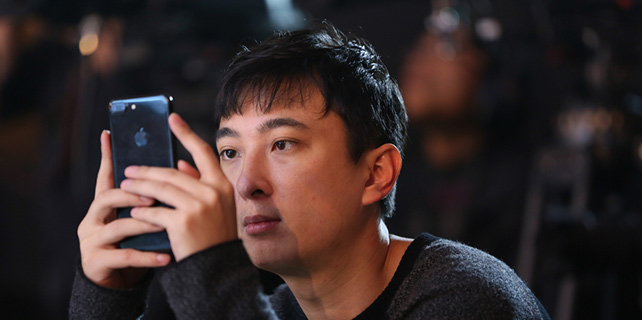Teenage suicide raises painful issues in Asian-American communities
The recent suicide of an Asian-American girl, an 11th grader who attended a top-performing high school in the Bay Area, once again saddened an entire community of parents, educators and peers.
Her cause of death, according to school authorities, was intentionally overdosing on antidepressant drugs. "She was determined to kill herself," said a mom surnamed He, whose daughter was a classmate of the girl.
More stunning, said He, is that many of the teenagers at the same school discussed their repeated suicide attempts with counselors, who were made available to provide support to students and staff who may have been distraught after the tragedy.
"My daughter told me that her close friend tried twice or three times the same kind of drugs as the victim did," said He, "but ended up with a narrow escape, probably because the amount was not enough."

He said she was so concerned that her daughter and peers are struggling with "overwhelming levels of anxiety and depression fueled by a lack of meaning, purpose and attachment to something greater than only themselves".
Teen suicide has been a serious social problem and is getting worse, said Xie Gang, a Fremont Unified School District psychologist since 2000.
According to the Society for the Prevention of Teen Suicide, suicide is the second leading cause of death for people ages 10 to 24 and the second leading cause of death for college-age youth and those age 12 to 18.
Each day in the US, there are about 5,240 suicide attempts by young people in grades 7-12. More teenagers and young adults die from suicide than from cancer, heart disease, AIDS, birth defects, stroke, pneumonia, influenza and chronic lung disease combined.
"Among many reasons that trigger suicide attempts, the pressure for perfection probably is the most devastating," Xie said in 2015 at a seminar on parenting skills for Asian Americans. Xie spoke after a cluster of teen suicides in Palo Alto, California shocked the nation.
Gunn High School in Palo Alto, which was rated the fourth-best STEM (science, technology, engineering and mathematics) school in the nation by US News and World Report, and whose student body is 44 percent Asian American, had absorbed four student suicides over a period of six months in 2015. Three of the four were of Asian origin.
Asian parents tend to emphasize academic success more than any other achievement, said Lisa Xiong, a first-generation immigrant from China.
"We choose to believe that an admission letter to prestigious schools is a ticket to wealth and quality adult lives; thus, tedious work in schools is just a small price for our children to pay for a lifetime of safety and financial security," she said.
That mentality helps explain why the bar for good education is being set higher and the starting line earlier.
"We Asian parents are well known, or notorious, for being 'tiger moms or dads' to push our children to be the best," said Xiong, adding that the end result will inevitably be a tragedy when teens reach their limits and "can't endure any longer".
"Our parenting style needs an immediate transformation if we really want to see a change in our children concerning their mental health, their well-being and their future," said Xiong. "We've sold our children a very narrow definition of success. We parents need to remind ourselves that it doesn't matter what our children do, as long as they are happy doing it."
For He, the secret of parenting is "to make friends with your children and hang out with them regularly".
She routinely checks in on the daily lives of her two teenagers.
"I heard their disappointment, loss, failure, grief, frustration and sadness; I refrained from giving comments and only listen," He said.
Contact the writer at junechang@chinadailyusa.com
(China Daily USA 03/21/2017 page2)









